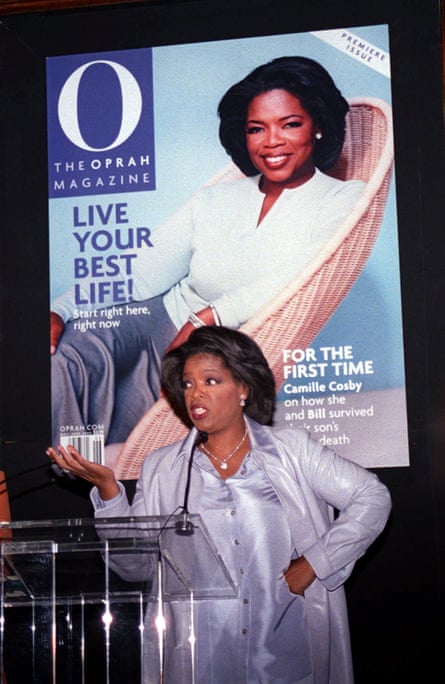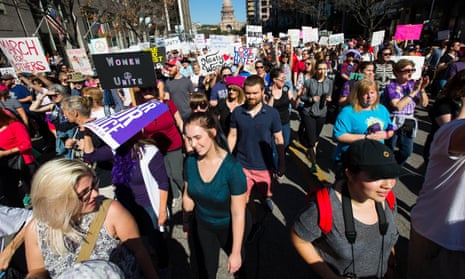Until very recently no one in public life would have felt comfortable talking openly about pussy. And yet what a difference half a year makes. Thanks to the efforts of one man who in so many ways appears to be a fictional character but sadly is not, pussy has become not only common usage but part of everyday international dialogue. It’s six months ago this week that the Hollywood Access tape featuring Donald Trump’s boast was unleashed upon the world: “Grab them by the pussy. You can do anything.” In the 26 weeks since, pussy has travelled from the locker room to the global stage. What a triumph. “Pussy” has been said in front of the prime minister on the BBC. Pussy has been debated in the House of Commons.
As the story broke in early October, CBBC’s Newsround’s version for children was heartbreaking in its sensitive avoidance of the key word: “Donald Trump is in trouble for some comments he made about women. In the past Donald Trump has used words like ‘pig’, ‘fat’ and ‘ugly’ to describe women he disagreed with. Now a 2005 video has come out in which he said even worse things about women.” Even worse things, indeed. As the kids like to say: what a time to be alive.

The leaked quote has defined an era to such an extent that Pussygate has – naturally! – spawned a work of art. Man Booker prizewinner Howard Jacobson has immortalised Trump in a fairytale for our times, out next week. Trump is Prince Fracassus, a man-child raised on reality television shows who fantasises that he is the ruler to make his country great again. The title of the novel? Pussy. What else?
But six months on, and liberals still don’t get why the “pussy” moment was not instrumental in raising questions about Trump. In fact it had the opposite effect. It galvanised his support. It boosted his campaign. It played well to the base, as they like to say. Just as, in the face of all the current investigations, the men-only White House photo line-ups play well. Just as people can shrug and say: “What do you mean, no women? They have Ivanka and Kellyanne.”
The crucial attempt to understand that moment and why it didn’t represent the end of everything for Trump is finally starting. Oprah Winfrey has led the charge. For the latest issue of O magazine, she gathered a cross-section of voters, five from each side. In her best therapist’s voice, Oprah says: “He said a lot of hurtful, divisive things. Can we all agree with that?” The Democrats spend the meeting weeping (literally). Oprah acknowledges their tears, but lets the Trump voters have their say. When Oprah works her way up to a discreet mention of “the P word”, the responses are blunt: “It was a private conversation and I’ve heard men say far worse.” And, importantly, the next reply: “What about Bill Clinton?” This is the pussy version of “But her emails … ” These defences have not changed in six months.
Unfortunately these responses reveal a logic liberals need to understand if they are to have any hope of countering it. I experienced this “defence of the pussy” first-hand recently after Piers Morgan retweeted something I wrote (to his five million followers). Morgan had questioned the validity of the women’s marches and suggested a march for emasculated men. I replied I would come with him when a woman is recorded inviting similar abuse of men’s genitals. (Except I said it more bluntly than that.) Trump supporters fought back in their exhausting hundreds.
Their reasoning was fascinating. They had no problem with the “pussy” thing. For them it was not a comment on Trump’s vulgarity or misogyny. It was a comment on how “easy” women are. They didn’t focus, as liberals did, on the words “grab them by the pussy”. They heard the previous quote: “When you’re a star, they let you do it.” It was a comment about people who have got it coming and who have had it coming for a long time. In other words, a bully’s charter.
How prescient the words “grab them by the pussy” turned out to be. Now it’s obvious that “pussy” stood for so much more than women. It stood for screwing things over generally. And seemingly against all odds, the man who spoke them turned out to be absolutely right. You can metaphorically grab them by the pussy. They will still vote for you. They will let you screw them. It’s not just about women, it’s about anyone who gets in your way or doesn’t let you do what you want. The “pussy” thing was a warning that this would be about vengeance. A lot of people like that kind of talk.
This is the unspoken message of Trump’s entire existence and, now, of his presidency. If you asked for it (and a lot of you definitely asked for it, women, Muslims, immigrants), then you’ve got it coming. “They let you do it.”
We liberals have completely failed to understand this. We need to understand it so that we can call it out for what it is. It was not (only) about misogyny. It was about picking a side. Do you want to stand with the bully? Or do you want to be bullied? We all know from school that lots of people would much rather stand with the bully. Why did we expect it to be any different this time? Happy Half Pussiversary. I’ll bake a Hello Kitty cake when it’s a full year.

